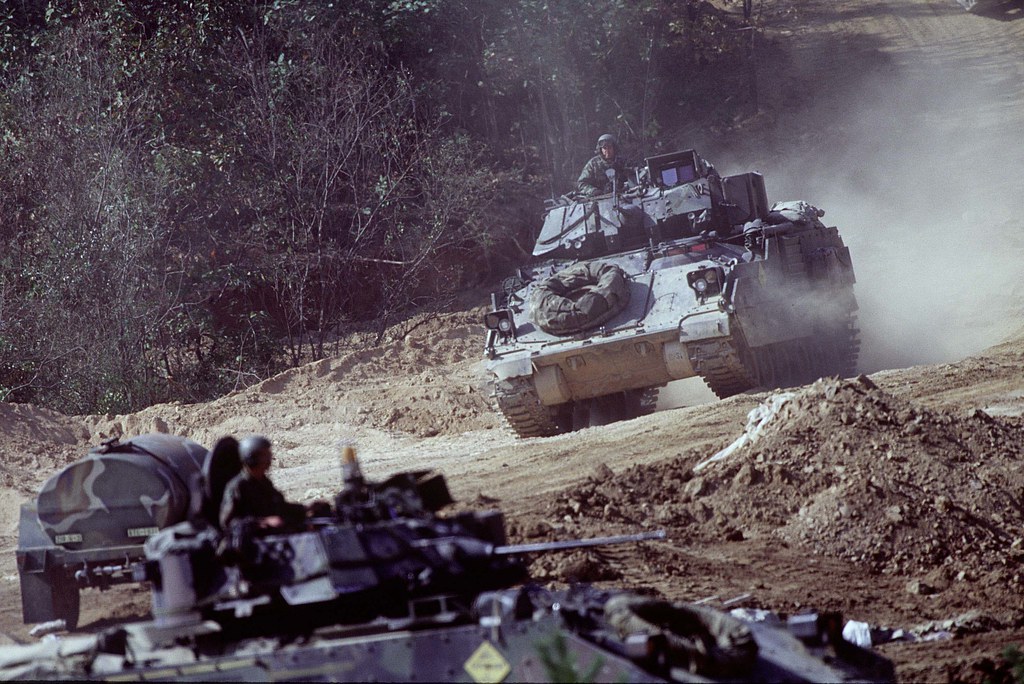
This post is also available in:
 עברית (Hebrew)
עברית (Hebrew)
By Arie Egozi
IDF Chief of Staff Lt.-Gen. Aviv Kochavi said that Israel’s northern front is the most fragile and at risk of deteriorating into war. “Despite the fact that Israel’s enemies are not interested in war, the IDF has increased its pace of preparations” for confrontation, Kochavi told journalists on October 23.
This warning emphasizes further the big dilemma faced by the Israeli government – how to explain to Washington that the military support it grants to the Lebanese army is actually helping Hezbollah, the Iranian proxy and major terror organization, which is actually controlling Lebanon.
In private talks, Israeli officials say that it is very strange that the US administration does not understand that any dollar spent on helping the Lebanese army actually goes to maintaining and increasing the power of Hezbollah. The question was put again in focus after the recent exchange of hostilities between the Hezbollah and the Israeli defense forces. It started with the launch of anti-tank rockets in an attempt to hit an IDF vehicle near the border that was followed by Israeli artillery pounding targets in Lebanon. While this clash ended within a short time relatively, an Israeli massive operation against the Iranian-led effort to make the 140.000 missiles in the hands of Hezbollah more accurate, promises additional clashes and even a major confrontation.
Dr. Mordechai Kedar, a research associate of the Begin-Sadat Center for Strategic Studies, is considered one of the leading experts on Middle East issues. He said that the Hezbollah actually controls Lebanon: “The organization controls the country’s presidency, no president was elected during two years until the candidate was approved by Hezbollah, it controls the government, the army and everything else “
Kedar added that countries supporting the Lebanese army simply ignore this fact and prefer to close their eyes. “The same thing happens with Iran when European governments deal with Tehran closing their eyes in order not to see the reality”
Avigdor Lieberman, Israel’s former Defense Minister currently heading a party that competed in the Sep. 17 second elections, said recently that “the Lebanese have lost their independence and are another unit of Hezbollah’s like the state of Lebanon”
Since 2006, the United States has provided the Lebanese army with more than $1.6 billion in military aid. Recent months have witnessed an expansion in US aid, some of which has already reached Lebanon. This aid includes six A-29 Super Tucano light planes for attack and patrol purposes, 32 Bradley M2-A2 armed personnel carriers, light attack helicopters (MD 530G), and six Scan Eagle unmanned aerial vehicles. In addition, US Special Forces personnel are currently present in Lebanon for training purposes.
The dilemma that is in the focus now is whether in a time of confrontation, the US will provide Israel with the necessary backing to realize Israel’s threats whereby “Hezbollah and Lebanon are one,” or alternatively, as it has done in the past, take action to prevent Israel from doing significant damage to the infrastructure of the Lebanese state and military, and refrain from using its veto in the Security Council.
When the Lebanese army and Hezbollah are actually one force, when the Hezbollah controls the Lebanese government, Israel may have to act against US-supplied weapon systems.
Israel has declared time after time that if Hezbollah starts launching missiles into its territory, Lebanon as a state will be considered in war with Israel and the retaliation will be accordingly.
After the recent clash, some politicians in Lebanon said that the fact the Hezbollah controls Lebanon may have devastating implications if a full-scale war breaks out.
The problem is that Hezbollah gets orders only from Tehran which openly and repeatedly says that its aim is to wipe Israel off the planet.

Arie Egozi, iHLS Editor-in-Chief

























